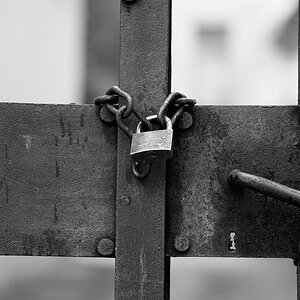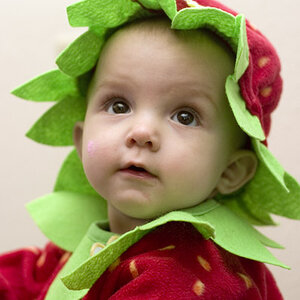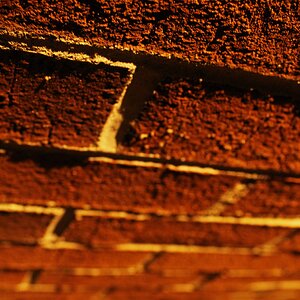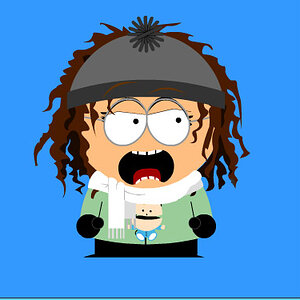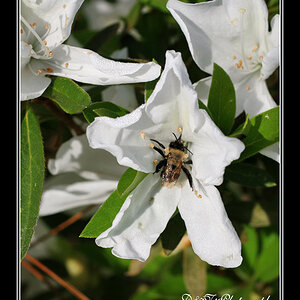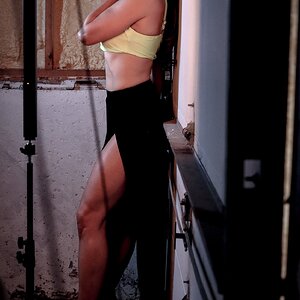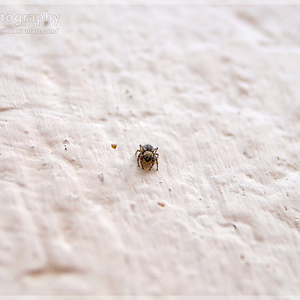jocose
TPF Noob!
- Joined
- Sep 16, 2005
- Messages
- 3,059
- Reaction score
- 118
- Location
- dans la pissoir
- Website
- www.musingsofjocose.com
- Can others edit my Photos
- Photos NOT OK to edit
OK, so someone decided to take me up on my offer and asked about Chanukah.
Here's my down and dirty on Chanukah.
First of all, it's NOT a significant holiday on the Jewish calendar. As a matter of fact, it's not even mentioned in the bible (although there are kabbalistic interpretations that show how it's hidden in the torah). Chanukah has only become significant in the past 100 or so years, and most likely it was to compete with Christmas.
Anyway, the basic story is that the mean ole Syrians came into Jerusalem and sacked the Temple. They destroyed all the bottles of olive oil and generally ruined the Temple. Along came Juda Maccabi, the leader of a rebel gang. His gang swooped down on Jerusalem and drove the Syrians out of the Temple and Jerusalem. When they re-entered the Temple to clean it, they noticed that the oil was gone. One lonely bottle was left intact.
Now, it took 8 days for someone to go from Jerusalem to the Golan Heights, come back, press the oil and get it to the Temple. You see, the oil was used to light the manorah that burned in the Temple. The word "manorah" simply means candlabrah (SP), and traditionally has 3 arms on each side, and a 7th candle in the middle.
They took that one lone bottle of olive oil and put it into the manorah, and lo, a miracle happened and it lasted for the entire 8 days until more oil was made.
Today, we commerate that miracle and the triumph of the Maccabis over the Syrians by celebrating Chanukah for 8 days. We light a specific manorah called a chanukiah, which has 4 arms on each side, and a 9th one in the middle. This middle one is called the "shamos," the worker, and is used to light the other candles, always starting from the newest (the left most one) and ending with the oldest. We also traditionally eat greesy foods on Chanukah--made with, umm, what else but olive oil--like potato latkahs...mmmm potato latkahs. And, yes, some play with the dreidal. No, we don't really make them out of clay.
The dreidal is just a top that has 4 Hebrew letters, one on each side: a "nun," a "gimmil," a "hay," and a "shin." These stand for the Hebrew phrase, "A great miracle happened there." The dreidals in Israel have a "pay" instead of a "shin," and that turns the phrase into "A great miracle happened here." Clever, eh? It's basically a gambling game, but I don't remember how to play.
That's pretty much it.
But since you made it this far, I'll share something I learned when I was in school. Traditionally we say that the 2 big miracles were that 1) they found one jar of olive oil with the seal still intact and 2) that one bottle lasted for 8 days. There are some who say that the fact that the bottle had a seal at all was also a miracle because they didn't usually seal the bottles, so the mere fact that Juda and his gang found one with a seal was a miracle.
Thanks for reading. For more information on Chanukah, please go to this site: http://www.chabad.org/holidays/chanukah/default.asp
Here's my down and dirty on Chanukah.
First of all, it's NOT a significant holiday on the Jewish calendar. As a matter of fact, it's not even mentioned in the bible (although there are kabbalistic interpretations that show how it's hidden in the torah). Chanukah has only become significant in the past 100 or so years, and most likely it was to compete with Christmas.
Anyway, the basic story is that the mean ole Syrians came into Jerusalem and sacked the Temple. They destroyed all the bottles of olive oil and generally ruined the Temple. Along came Juda Maccabi, the leader of a rebel gang. His gang swooped down on Jerusalem and drove the Syrians out of the Temple and Jerusalem. When they re-entered the Temple to clean it, they noticed that the oil was gone. One lonely bottle was left intact.
Now, it took 8 days for someone to go from Jerusalem to the Golan Heights, come back, press the oil and get it to the Temple. You see, the oil was used to light the manorah that burned in the Temple. The word "manorah" simply means candlabrah (SP), and traditionally has 3 arms on each side, and a 7th candle in the middle.
They took that one lone bottle of olive oil and put it into the manorah, and lo, a miracle happened and it lasted for the entire 8 days until more oil was made.
Today, we commerate that miracle and the triumph of the Maccabis over the Syrians by celebrating Chanukah for 8 days. We light a specific manorah called a chanukiah, which has 4 arms on each side, and a 9th one in the middle. This middle one is called the "shamos," the worker, and is used to light the other candles, always starting from the newest (the left most one) and ending with the oldest. We also traditionally eat greesy foods on Chanukah--made with, umm, what else but olive oil--like potato latkahs...mmmm potato latkahs. And, yes, some play with the dreidal. No, we don't really make them out of clay.
The dreidal is just a top that has 4 Hebrew letters, one on each side: a "nun," a "gimmil," a "hay," and a "shin." These stand for the Hebrew phrase, "A great miracle happened there." The dreidals in Israel have a "pay" instead of a "shin," and that turns the phrase into "A great miracle happened here." Clever, eh? It's basically a gambling game, but I don't remember how to play.
That's pretty much it.
But since you made it this far, I'll share something I learned when I was in school. Traditionally we say that the 2 big miracles were that 1) they found one jar of olive oil with the seal still intact and 2) that one bottle lasted for 8 days. There are some who say that the fact that the bottle had a seal at all was also a miracle because they didn't usually seal the bottles, so the mere fact that Juda and his gang found one with a seal was a miracle.
Thanks for reading. For more information on Chanukah, please go to this site: http://www.chabad.org/holidays/chanukah/default.asp


![[No title]](/data/xfmg/thumbnail/33/33023-51777cffdd160249e68e593d19942418.jpg?1619735835)
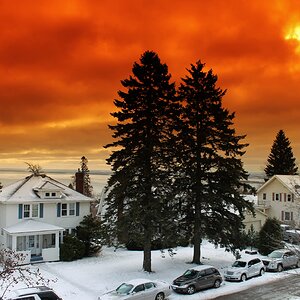
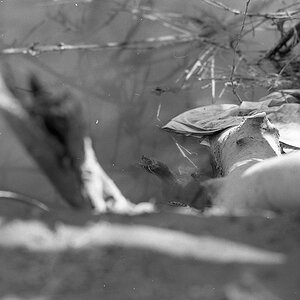
![[No title]](/data/xfmg/thumbnail/34/34687-f643984276d5d6af7e697542a2e81c23.jpg?1619736603)
